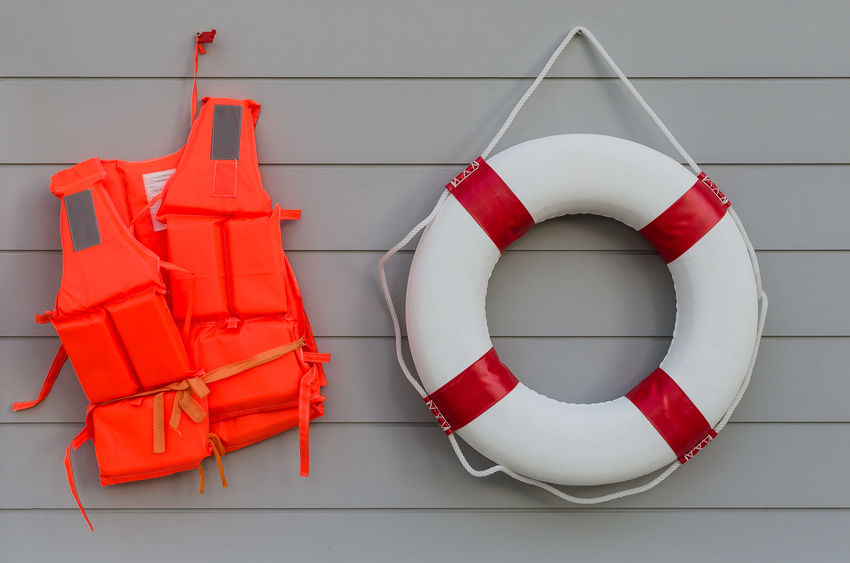13 Tips from the National Safe Boating Council
June 10, 2019 | Category: Boating Accidents | Share Boating is a way of life for most people in Florida. Whether they are interested in fishing, site-seeing or even looking for new swimming locations, safety needs to be the number one priority. The National Safe Boating Council sponsors a year-long campaign starting in May each year.
Boating is a way of life for most people in Florida. Whether they are interested in fishing, site-seeing or even looking for new swimming locations, safety needs to be the number one priority. The National Safe Boating Council sponsors a year-long campaign starting in May each year.
Here are 13 tips the Council would like all boaters to remember when boating:
- Wear a life jacket. No matter what activity you have planned on the water, always remember to wear a life jacket every time you are on the water. Accidents on the water can happen much too fast to reach and put on a stowed life jacket.
- Make sure your life jacket is U.S. Coast Guard approved, appropriate for your water activity and fits properly. A life jacket that is too large or too small can cause different situational problems.
- Know state boating laws. Rules and laws can differ from state to state and violations can result in ticketing, fines or jail time.
- Take a boating safety course. Learn valuable tips that can help save your life in unexpected situations by taking a National Association of Boating Law Administrators (NASBLA) approved boating safety course. Many courses are online and will save you money on your boat insurance.
- Make sure your boat is prepared. There are many items that need to be checked and rechecked on any boat. Schedule a Vessel Safety Check with your local U.S. Coast Guard Auxiliary or U.S. Power Squadrons before you hit the water. Every Vessel Safety Check is conducted 100 percent free of charge.
- Be sure to know your boat’s capacity. If you have too much on your boat, the boat may become unstable and capsize.
- Check the weather, including the water temperature. Know the latest marine weather forecast prior to going out and keep a regular check for changing conditions.
- Dress properly. Always dress for the weather, wearing layers if cooler weather, and bring an extra set of clothes in case you get wet.
- Always file a float plan. File a float plan with someone you trust that includes details about the trip, boat, persons, towing or trailer vehicle, communication equipment and emergency contacts. Find out more at floatplancentral.org.
- Always follow navigation rules. Know the “Rules of the Road” such as operator’s responsibility, maintaining a proper lookout, safe speed, crossing, meeting head-on and overtaking situations. Know what’s going on around you at all times and always travel at safe speeds for the environment. Find out more at boatoncourse.com.
- Don’t drink while you boat. Where the primary cause was known, alcohol was listed as the leading factor in 15 percent of deaths in 2016. Find out more at operationdrywater.org.
- Beware of carbon monoxide poisoning. Gasoline-powered engines on boats, including onboard generators, produce carbon monoxide (CO), a colorless and odorless gas that can poison or kill someone who breathes too much of it. Be sure to install and maintain a working CO detector, never block exhaust outlets, and always dock, beach or anchor at least 20 feet away from the nearest boat that is running a generator or engine.
- Keep in touch. Communication devices can be the most important piece of emergency equipment on board a vessel, especially in case of an emergency. Be sure to have at least two communication devices that work when wet, such as satellite phones, emergency position indicating radio beacons (EPIRB), VHF radios and personal locator beacons (PLB). Cell phones are not reliable in an emergency situation.
“Boating is fun and a memorable experience for many. Let’s make sure the memories are positive by following these 13 safe boating tips,” said Fort Myers Boat Accident Lawyer Randall Spivey of Spivey Law Firm, Personal Injury Attorneys, P.A. “If you or a loved one is injured in a boating accident because of the negligence of another, please contact us after seeking medical attention. We help boating accident victims obtain justice.”
Fort Myers Boat Accident Attorney, Randall L. Spivey is a Board Certified Trial Attorney – the highest recognition for competence bestowed by the Florida Bar and a distinction earned by just one (1%) percent of Florida attorneys. He has handled over 2,000 personal injury and wrongful death cases throughout Florida. For a free and confidential consultation to discuss your legal rights, contact the Spivey Law Firm, Personal Injury Attorneys, P.A., in Lee County at 239.337.7483 or toll free at 1.888.477.4839,or by email to Randall@SpiveyLaw.com. Visit SpiveyLaw.com for more information. You can contact Spivey Law Firm, Personal Injury Attorneys, P.A.in Charlotte County at 941.764.7748 and in Collier County 239.793.7748.

